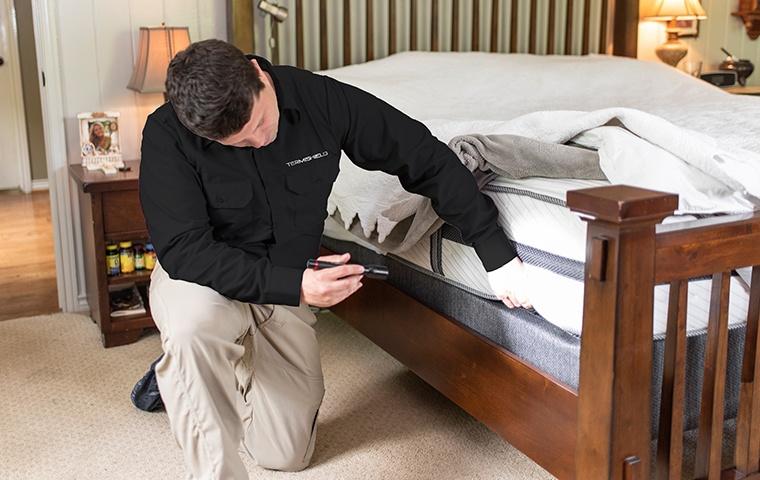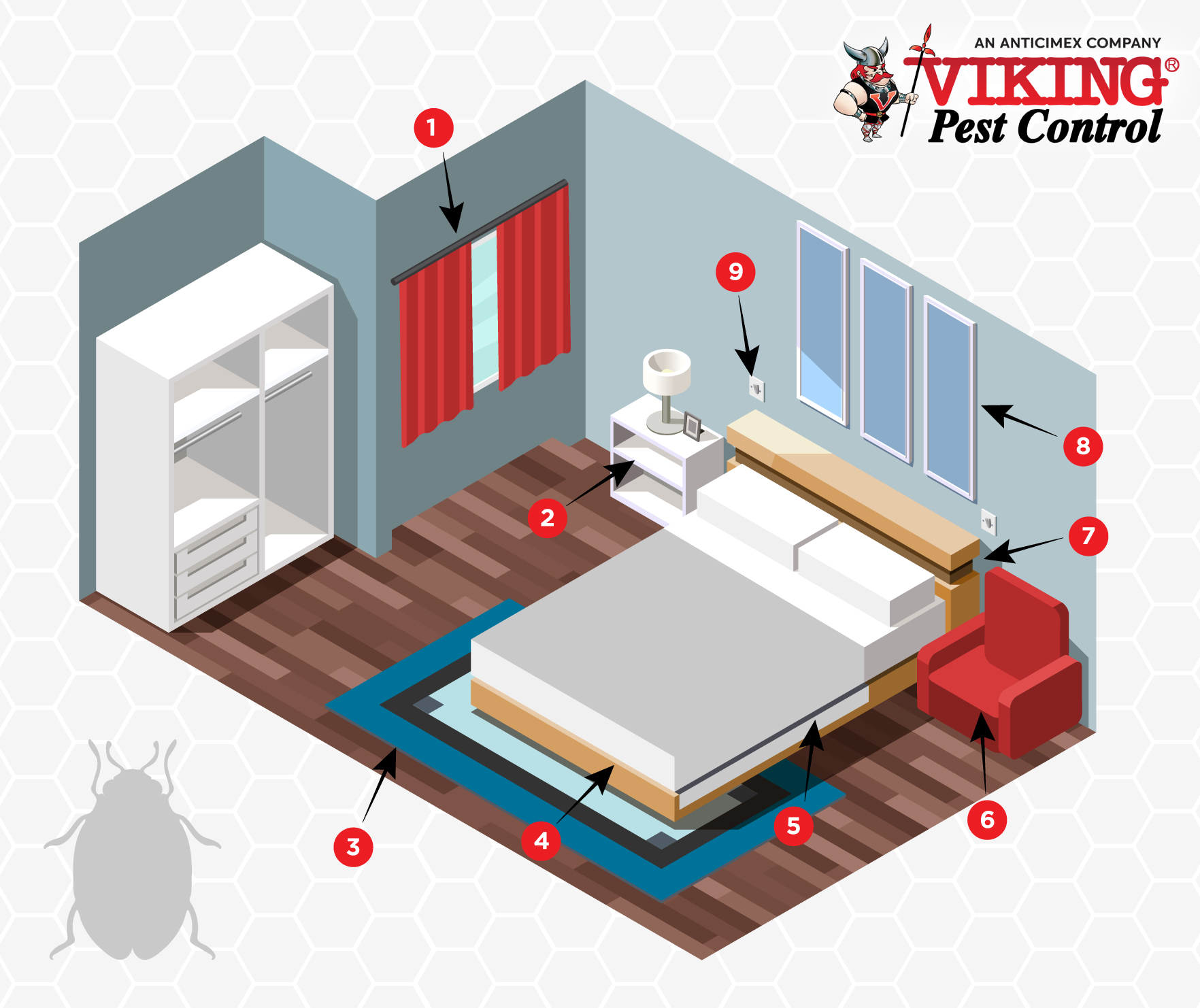Kings Cincinnati Pest Control Companies: Reliable Services
Wiki Article
Sorts Of Pest Control: Which Technique Is Right for Your Infestation?
When encountered with a bug invasion, the selection of a suitable method for parasite control is critical in successfully handling the situation. By discovering the different types of parasite control techniques available, people can make educated choices customized to their unique conditions, making sure a more lasting and efficient end result in bug eradication.Chemical Parasite Control
Chemical insect control entails using artificial or naturally acquired chemicals to handle and get rid of pest populations properly. This technique is generally used in farming, forestry, and domestic setups to fight a vast range of bugs, including weeds, rodents, and pests. The use of chemical pesticides can supply fast and targeted services to pest problems, making it a popular option for many individuals and organizations.One of the essential benefits of chemical pest control is its capability to promptly eliminate bugs, lowering the threat of damage to crops, residential or commercial property, and human wellness. By making use of specific chemicals that target specific bugs, this approach can effectively control invasions while reducing injury to beneficial microorganisms and the setting when used appropriately.
However, using chemical insect control likewise increases worries concerning possible damaging results on non-target varieties, water resources, and human wellness. It is crucial to follow safety guidelines, apply chemicals sensibly, and take into consideration different pest control approaches to decrease these threats and make certain lasting parasite monitoring methods.
Organic Insect Control
Biological insect control, also called biocontrol, makes use of living microorganisms to take care of and minimize pest populaces normally. This technique utilizes the power of nature to control pests without the demand for artificial chemicals. Biocontrol can involve the intro of all-natural opponents of the pest varieties, such as microorganisms, bloodsuckers, or killers, to suppress parasite populations. By utilizing the parasite's natural predators or microorganisms, biological parasite control provides a lasting and environmentally pleasant service to pest management.
Mechanical Parasite Control
Making use of physical and hand-operated approaches to handle insect populations, mechanical insect control provides an alternative approach that does not depend on the usage of living microorganisms or artificial chemicals. This method entails making use of obstacles, catches, or various other tools to literally prevent or remove insects. By blocking insect entry points or establishing traps to capture them, mechanical parasite control can successfully lower infestations without introducing chemicals into the atmosphere.One common example of mechanical parasite control is using mesh displays on doors and windows to stop insects exterminator near me from entering structures. This easy yet reliable approach serves as a physical barrier, maintaining pests out while permitting correct air flow. Additionally, tools like mousetraps, fly swatters, and ultrasonic repellents drop under the mechanical insect control group.
While mechanical parasite control methods can be labor-intensive and need routine tracking and upkeep, they use a lasting and eco-friendly solution for taking care of pest invasions. By incorporating various mechanical methods, home proprietors can develop a comprehensive bug control approach that lessens dependence on chemical pesticides.
Physical Insect Control

Some typical physical bug control approaches include the use of obstacles such as internet or displays to avoid parasite access, traps to catch and remove insects, and hand-picking to physically get rid of bugs from plants or structures. Additionally, techniques like warmth treatments can be used to regulate bugs like bed insects by raising the temperature level to degrees that are lethal to the pests.
Physical bug control is especially useful in incorporated insect management (IPM) approaches, where several pest control approaches are integrated for effective bug management while decreasing the usage of chemicals. By utilizing physical parasite control methods, people can successfully address bug infestations with marginal environmental influence.
Integrated Pest Management
When applying physical insect control approaches as part of bug management methods, Integrated Pest Administration (IPM) becomes a detailed strategy that leverages different strategies to effectively manage pest populaces. IPM concentrates on long-lasting avoidance of insects with a mix of biological, cultural, physical, and chemical devices customized to particular bug concerns. By integrating numerous control techniques, IPM intends to minimize the dangers related to pests while likewise minimizing dependence on chemical solutions.One key element of IPM is the focus on surveillance and assessing pest populaces to figure out the most ideal control techniques. This positive strategy enables for early intervention and targeted methods, causing much more efficient parasite administration. Furthermore, IPM promotes eco-friendly techniques by focusing on non-chemical control approaches and just utilizing pesticides as a last hotel.
Final Thought

By utilizing the bug's all-natural predators or microorganisms, organic parasite control offers a ecologically pleasant and lasting you could try these out option to pest monitoring. - Kings pest control Cincinnati Ohio
Making use of physical and hand-operated methods to handle bug populaces, mechanical parasite control supplies an alternative approach that does not rely on the usage of living microorganisms or artificial chemicals.An efficient strategy to taking care of pest populations without relying on chemical or biological approaches entails the usage of physical parasite control strategies.When applying physical parasite control approaches as component of bug administration methods, Integrated Bug Administration (IPM) emerges as an extensive method that leverages various techniques to efficiently manage pest populaces. Chemical insect control entails the use of pesticides, organic insect control utilizes all-natural killers, mechanical bug control entails physical barriers, physical insect control includes capturing or getting rid of bugs, and integrated pest monitoring integrates multiple methods for an all natural technique to pest control.
Report this wiki page